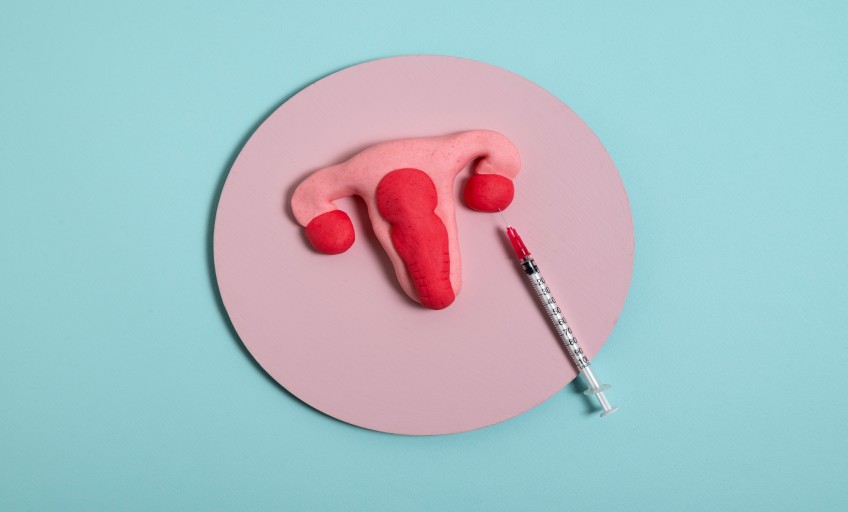Key Takeaways
- Men might experience faster initial weight loss than women, but the gap typically narrows over time.
- The challenges women face in managing weight include hormonal fluctuations, body composition differences, and body image issues.
- Focus on sustainable lifestyle changes and self-care, and address hormonal imbalances to manage weight successfully.
Picture you and your partner going on a diet together. You both are motivated and faithfully counting calories. Nevertheless, men are more likely to shed weight earlier than women. Why? Women’s genes, hormones, and other factors can make losing weight a little more challenging.
The myth of easier weight management for men

The idea that men manage weight more easily than women is a myth, as it depends on many factors. Men may lose weight faster than women initially, but the differences tend to even out over time. Physiologically, men burn fat faster. They possess greater lean muscle mass and a naturally higher metabolic rate. Since lean muscle burns more calories, having more leads to increased calorie expenditure. Due to their elevated metabolism, men typically require a higher daily calorie intake to sustain their resting metabolic rate – the energy needed for essential functions like sleeping and breathing.
Unique challenges women face in weight management
Is weight loss harder for women? They do face many unique challenges when trying to manage their weight, such as the following:
Hormonal fluctuations
Women undergo various hormone fluctuations in their entire lifetime. Apart from puberty, which both men and women experience in different ways, women attain menopause. Their hormones also fluctuate because of pregnancy, when they gain weight and body fat and shedding the postpartum weight can be difficult. The weight gain during menopause happens due to hormonal loss and slow metabolism. With age, decreasing muscle mass also makes it more challenging to maintain and manage your pre-menopause weight.
Body composition differences
Women typically have more body fat and less muscle than men. This affects their basal metabolic rate (BMR), or how many calories their bodies burn at rest. Men and women have varied bone structures and store fat in different body parts. Women’s fat storage is more spread out. So, they have to lose more weight to see changes in their appearance.
Societal pressures and body image issues
Women are often pressured to achieve an unrealistic appearance, which can lead to body image concerns and body dysmorphia. The fear of regaining weight can lead to unhealthy dieting practises like yo-yo dieting or the pattern of repeatedly losing and regaining weight. Women may use food to cope with stress or emotional pain. So, they may either refrain from eating on one hand or binge eat on the other, which is harmful and affects their health.
Strategies for successful weight management for women
Women can manage weight by taking several achievable steps, some of which are mentioned as follows:
Focus on sustainable lifestyle changes

Prioritize whole foods, regular exercise, and stress management. Include whole grains, legumes, fruits, and vegetables to promote satiety and regulate digestion. Get at least 30 minutes of moderate-intensity exercise most days of the week, incorporating cardio and strength training. To reduce stress-related eating, practise deep breathing, meditation, or yoga.
Strength training
Build muscle mass to boost metabolism and improve body composition. Maintain muscle by incorporating 20 to 30-minute resistance training sessions at least twice weekly. It helps you burn off calories, even when you are sitting or at rest. You can:
- Create a mini gym at home or use gym machines
- Use free weights or resistance bands
- Participate in a group fitness class, like Pilates
- Use your body for resistance to do push-ups, squats and lunges
Address hormonal imbalances
Consult your healthcare provider to manage the following hormonal imbalances:
- Estrogen fluctuations: These can occur during menstrual cycles, pregnancy, and menopause, potentially causing weight gain and mood swings.
- Insulin resistance: High insulin levels can contribute to weight gain and hormonal imbalances.
- Cortisol dominance: Persistent stress can increase cortisol levels, affecting appetite and metabolism.
- Thyroid issues: Hypothyroidism can cause weight gain and fatigue.
Prioritize self-care
To successfully manage weight while prioritizing self-care:
- Practise self-compassion and prioritize mental and emotional well-being
- Listen to your body’s needs by avoiding extreme restrictions
- Set realistic goals
- Seek support when necessary
- Celebrate small wins and progress
Manage weight effectively
You must be patient when it comes to weight loss. Remember, healthy weight loss is gradual. Managing weight slowly but steadily promotes broader and healthier lifestyle changes.
Stay tuned to the Activ Living Community. Keep up to date with the latest health tips and trends through expert videos, podcasts, articles, and much more on nutrition, fitness, mindfulness, and lifestyle conditions like Asthma, Blood Pressure, Cholesterol, and Diabetes. Activ Living ke saath sahi sehat ki shuruat ABHI karo.
You may also be interested in the following blogs:
- Calorie Deficit To Lose Weight: What Is It And 4 Strategies For Safe Weight Loss
- Yoga Mudras For Weight Loss: Enhance Your Metabolism Naturally
Popular Searches
How to lower blood pressure | Fruits good for liver | Unhealthy foods | Ragi Benefits | Basal Metabolic Rate | Acupressure points for High Blood Pressure | Ayurvedic medicine for blood pressure | How to control cholesterol at home | Homeopathy for Asthma | Biological Age | Home remedies for TB | Natural beta blockers | Negative effects of internet | Types of walking | Blood pressure calculator | Blood sugar calculator | BMI Calculator





 1800-270-7000
1800-270-7000






